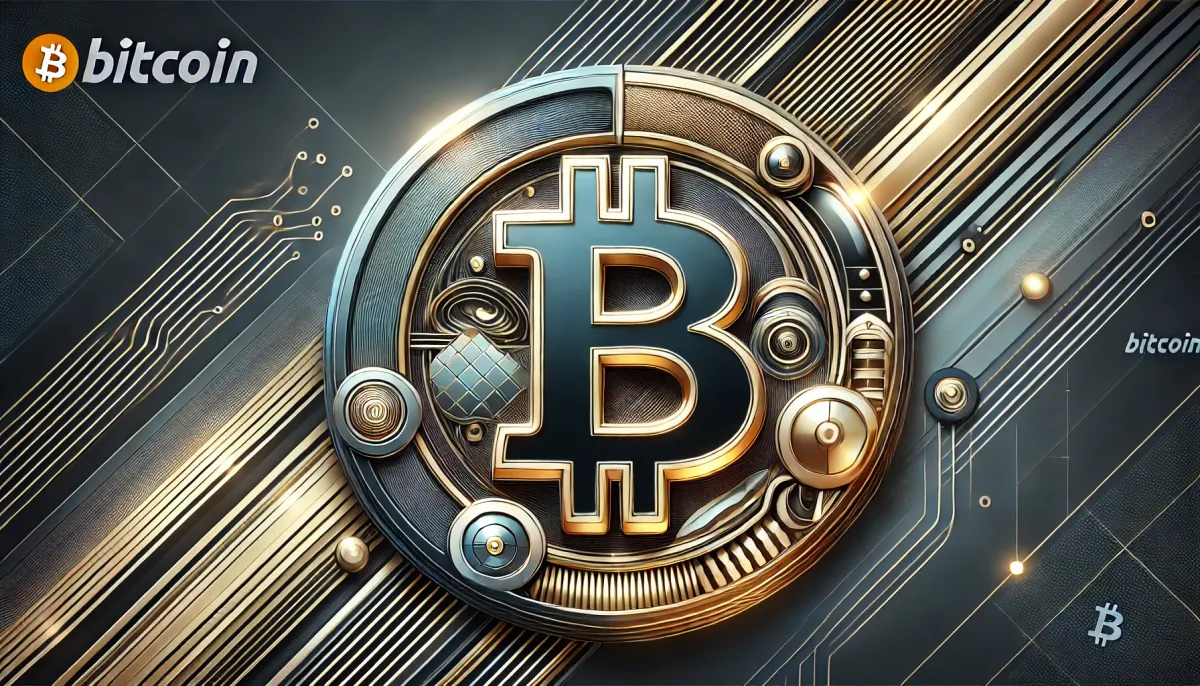Strategies for Nation-State Bitcoin Adoption: Policy Pathways and Economic Impacts
In this October 22, 2024 podcast from Bitcoin im Bundestag, Samson Mow explores viable strategies for nation-states to integrate Bitcoin into their economic frameworks.

- My 'briefing notes' summarize the content of podcast episodes; they do not reflect my own views.
- They contain (1) a summary of podcast content, (2) potential information gaps, and (3) some speculative views on wider implications.
- Pay attention to broadcast dates (I often summarize older episodes)
- Some episodes I summarize may be sponsored: don't trust, verify, if the information you are looking for is to be used for decision-making.
Summary
This October 22, 2024 podcast from Bitcoin im Bundestag explores viable strategies for nation-states to integrate Bitcoin into their economic frameworks. Addressing its role as a hedge against fiat inflation, its potential for use as a national reserve, and the advantages of energy-driven Bitcoin mining, Samson Mow presents a case for Bitcoin as a transformative asset. The analysis outlines key strategies, potential benefits, and the socio-economic impact of such adoption, with insights on El Salvador’s pioneering example.
Take-Home Messages
- Bitcoin as a National Reserve: Bitcoin’s unique properties make it a compelling option for nations seeking a resilient, decentralized reserve asset to combat inflation.
- Energy-Driven Mining: Energy-abundant countries, especially those with renewable resources, have the potential to capitalize on Bitcoin mining for economic gain.
- Educational Engagement with Policymakers: Proactive education is essential for governments to understand Bitcoin’s advantages amid institutional opposition.
- Sustainable Energy Policies for Mining: Nations aiming to integrate Bitcoin mining should consider sustainable policies, including nuclear and renewables, to support the economic viability of mining.
- Strategic Accumulation: The window for nations to build significant Bitcoin reserves is closing, as global interest in Bitcoin rises and competition intensifies.
Overview
In this October 22, 2024 podcast, Samson Mow, CEO of JAN3, addresses the German Bundestag on strategies for Bitcoin adoption at the nation-state level. He highlighted Bitcoin’s unique potential as a national reserve asset, arguing that its decentralized structure and scarcity offer resilience against fiat inflation, particularly relevant in regions where currency devaluation threatens economic stability. Mow cited El Salvador’s experience as a pioneering model, where Bitcoin’s adoption as legal tender and its issuance of Bitcoin-backed bonds have offered insights into the potential economic benefits and challenges of national-level Bitcoin integration.
Mow outlined three strategic pathways for countries interested in adopting Bitcoin: direct acquisition of Bitcoin for national reserves, issuance of Bitcoin-backed bonds, and enacting Bitcoin-friendly policies. He stressed the importance of proactive engagement with governments to counterbalance the influence of other well-funded digital assets, like Ethereum, which also seek regulatory favor. Without dedicated education, he warned, Bitcoin could be disadvantaged by competing digital assets that provide more immediate incentives to policymakers.
In addition to policy pathways, Mow addressed the role of energy policy in Bitcoin mining, pointing out that energy-abundant countries could tap into Bitcoin mining as a revenue source. Developing nations with renewable energy resources (e.g., Bhutan, Paraguay, various African countries), such as geothermal or hydroelectric, could benefit significantly from mining. However, Mow noted Germany’s shift away from nuclear power as a limiting factor in energy autonomy and suggested this could restrict the nation’s potential for large-scale mining operations.
Stakeholder Perspectives
- Policymakers: Bitcoin offers an alternative reserve option that can stabilize national wealth; however, concerns about volatility and regulatory challenges persist.
- Global Financial Institutions: IMF and World Bank oppose Bitcoin adoption, potentially viewing it as a threat to their economic influence, especially in the developing world.
- Energy-Rich Developing Nations: Bitcoin mining provides a feasible pathway for countries to leverage untapped or renewable energy sources for economic growth.
- Environmental Advocates: They support sustainable mining practices but express concern over mining's environmental impact, especially in areas dependent on fossil fuels.
Implications
The adoption of Bitcoin as a national reserve could offer governments a tool for economic stability amid inflationary pressures on fiat currencies. By embracing Bitcoin mining, energy-abundant developing nations could convert local resources into economic value, creating a new source of income. While this trend could accelerate decentralization in global financial systems, it also challenges traditional power dynamics, especially as these developing nations gain economic leverage through Bitcoin.
From an investor perspective, nations holding Bitcoin reserves may become more attractive investment destinations, as Bitcoin-backed economic models gain traction. Additionally, the expansion of Bitcoin mining in energy-rich regions could align with sustainable investment initiatives, offering a compelling avenue for eco-conscious investors.
Future Outlook
Looking ahead, businesses that adopt Bitcoin early stand to gain a significant competitive advantage as inflation continues to erode the value of fiat currencies. By leveraging Bitcoin’s ability to maintain purchasing power over time, businesses can attract a customer base seeking to transact in sound money. This shift will likely accelerate Bitcoin’s role as a key payment method, particularly for small businesses navigating inflationary pressures.
In the long term, Bitcoin adoption could reshape broader economic incentives, promoting higher quality goods and services across industries. The realignment of incentives away from fiat-driven cost-cutting toward sustainability and quality will benefit both consumers and producers (a result of decreasing time preferences), creating healthier market dynamics. The next steps involve educating businesses and consumers about these benefits, ensuring a smoother transition from fiat reliance to Bitcoin integration.
Information Gaps
- What are the primary obstacles preventing governments from adopting Bitcoin policies, and how can these be overcome? This question targets the challenges that hinder government-level Bitcoin adoption. Identifying and addressing these obstacles could lead to a clearer, more efficient pathway for Bitcoin advocacy.
- What specific economic benefits could Bitcoin offer to developing nations struggling with fiat instability? Understanding Bitcoin’s advantages for developing nations is crucial, as it may provide economic resilience and improve financial inclusion where fiat currencies falter.
- How can energy-abundant countries sustainably integrate Bitcoin mining into their national energy policy? This question explores the integration of Bitcoin mining within energy-rich national economies, potentially creating new revenue streams while advancing sustainable practices.
- What are the main reasons for IMF and World Bank resistance to Bitcoin adoption in developing nations? Addressing this opposition is essential for formulating strategies that allow nations to reduce reliance on traditional financial institutions while benefiting from Bitcoin.
- How can Bitcoin mining be optimized to reduce environmental impact while supporting renewable energy development? This interdisciplinary question merges environmental concerns with Bitcoin mining’s economic viability, encouraging sustainable practices that align with both financial and ecological goals.
Broader Implications
Bitcoin as a National Reserve Asset
Bitcoin's growing appeal as a reserve asset has broad implications for economic sovereignty, particularly in inflation-prone nations. Its finite supply and decentralized nature make it resistant to inflationary pressures, offering a potential shield against currency devaluation that could redefine global reserve dynamics. Should Bitcoin become a common reserve, it may disrupt traditional currency reserves and reshape financial stability models for central banks and governments.
Hyperbitcoinization and Global Decentralization
The concept of hyperbitcoinization hints at a future where Bitcoin emerges as a dominant global currency, driving economic decentralization. This trend may weaken the centralized power of global financial institutions, altering cross-border capital flows and affecting foreign exchange dependencies. As more nations adopt Bitcoin, there is potential for a decentralized financial structure that redistributes economic power away from centralized institutions like the IMF.
Energy-Rich Nations Leveraging Bitcoin Mining
Bitcoin mining opens pathways for energy-abundant nations to convert excess energy into economic value, particularly through renewable sources. Countries rich in geothermal, hydroelectric, or solar energy can integrate mining into their energy policies, promoting sustainable development while creating new revenue streams. This approach could establish a precedent for using Bitcoin mining as an economic tool, especially in the global South, aligning with sustainable development goals.
Institutional and Self-Custody Dynamics
The choice between institutional and self-custody of Bitcoin has deep implications for control and security in national reserves. Institutional custody may centralize control over Bitcoin holdings, potentially compromising sovereignty, while self-custody aligns with Bitcoin’s decentralized ethos but raises security challenges. As governments and institutions navigate these options, the balance of power in Bitcoin management could shape future asset custodianship models.
Policy and Regulatory Evolution
Adopting Bitcoin as a legal tender or reserve asset necessitates significant policy evolution, as governments balance regulatory control with Bitcoin's inherently decentralized nature. Clear and supportive regulatory frameworks could encourage adoption, yet traditional financial policies often conflict with Bitcoin's structure. Addressing these gaps can accelerate national-level adoption and encourage a more predictable legal environment for Bitcoin investments.
The Role of Education in Policy Advocacy
Educating policymakers about Bitcoin's advantages is critical as various digital assets compete for regulatory favor. Well-capitalized altcoins may sway uninformed policymakers, potentially sidelining Bitcoin in strategic economic conversations. Effective advocacy ensures that policymakers are informed about Bitcoin’s potential as a resilient asset, helping avoid decisions that may inadvertently favor less decentralized digital assets.



Comments ()